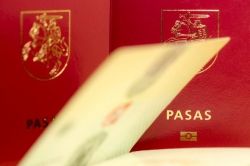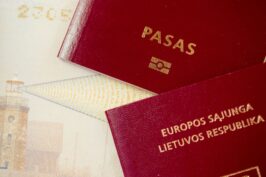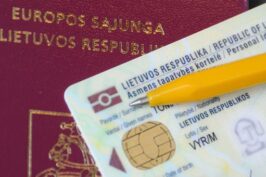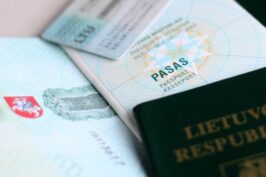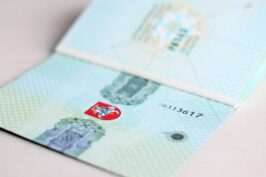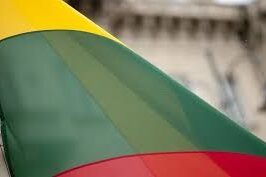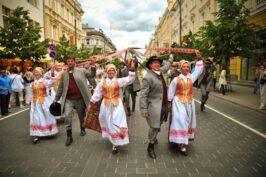- Home
- Citizens of Lithuania according to the Provisional Law on Lithuanian Citizenship of 09 January 1919
Citizens of Lithuania according to the Provisional Law on Lithuanian Citizenship of 09 January 1919
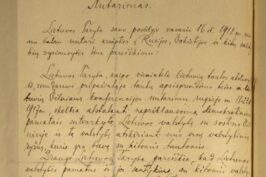
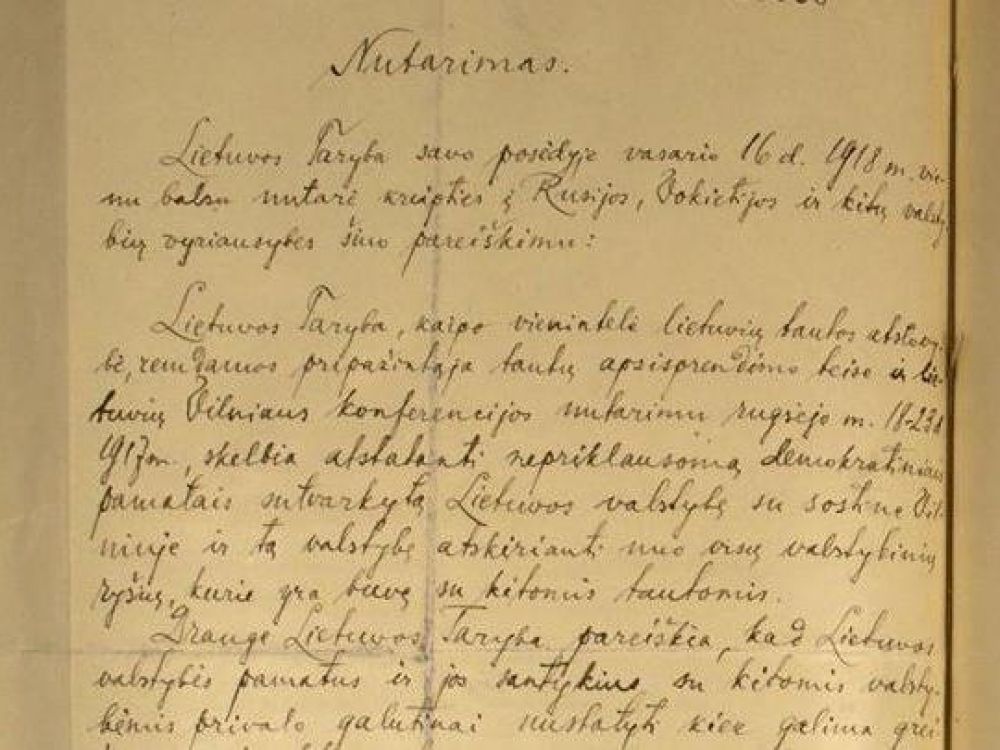
According to the Provisional Law on Lithuanian Citizenship of 09 January 1919, citizens of Lithuania shall be deemed to be: “1) persons, whose parents and grandparents have lived in Lithuania since ancient times and who themselves always live in Lithuania; 2) children of persons indicated in the first subsection, who even though did not always live in Lithuania, but returned to live thereto; 3) persons who have lived in Lithuania no less than ten years before 1914 and who had: a) either their own real property, b) or permanent job; 4) children of a citizen of Lithuania; 5) his wife or widow; 6) children of a not married citizen of Lithuania, if they have not been accepted by the alien as his children”.
Persons were not naturally considered as citizens of Lithuania, who “even had a permanent job, but their job was solely serving for the Russian State, i.e. Russian clerks”.
Under the law, persons were treated as citizens of Lithuania who have lived in Lithuania no less than ten years before 1914 and who had either their own real property, or job. It was not stipulated in the law what was meant by “to live in Lithuania no less than ten years”. When applying the law, a condition “to live in Lithuania no less than ten years before 1914” was explained as a necessity to live without a break in Lithuania during years 1904-1914. The person was not treated as living in Lithuania for the last decade before 1914, if he “only had the purpose to study”. Russian clerks indicated in the law (besides, the concept of “clerk” was explained as embracing both civilians and soldiers) were not entitled to the citizenship of Lithuania, “if they lived until 1914 and have lived without a break for the last ten years”. Nevertheless, if former Russian clerks “had a real property in Lithuania during that last decade, then they could be treated as citizens of Lithuania”. The provision of law regarding Russian clerks was interpreted as having “in mind only such former Russian clerks, who are not natives of Lithuania”.
Under the Statutes of Passports which entered into force on 01 July 1919, each citizen of Lithuania who reached 17 years old had to have a passport. The passport could not be issued to a non-Lithuanian citizen.
A person willing to obtain a passport had to “attest his personality: either by submitting a passport issued by the German occupational government or other documents, or witnesses, who were known to the issuing person”.
New Statutes of Passports were adopted on 05 December 1919, wherein differently from the previous ones it was not identified with which documents a person can prove that he is a citizen of Lithuania. Furthermore, it was not provided for that in such cases when a person is not able to submit documents evidencing his Lithuanian citizenship, he can rely on testimonies of witnesses. In accordance with the Statutes of Passports, passports were issued on the basis of Instruction of the Ministry of the Interior. It can be concluded thereof that the minister of the interior had to establish the procedure and ways of evidencing citizenship. “This instruction was very liberal and found many ways of proof”, also, including the fact that statements of two wittnesses were sufficient in order to prove the citizenship and that the applicant of passport is from Lithuania.
By Law of 22 November 1921, the Statutes of Passports were replaced and amended. It was determined that passports were issued only to those persons who will prove their Lithuanian citizenship with the following documents: “a) old Russian passports; b) Ob-Osto passports; c) common books of population lists of Russian times; d) birth or marriage certificates”.
It was established in the Statutes of Passports that each citizen of Lithuania must “obtain passports” until 31 March 1922. From this day “all other passports and personal testimonials shall be ceased”. Although a deadline of passport acquisition was extended several times, but a number of persons who “needed to obtain passport and clarify their citizenship” constantly increased with exiles from Russia.
MIGRATION LAW CENTER
